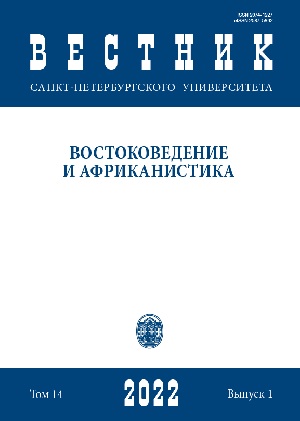Study on Korean Translation of Russian Idioms Related to Human Names
DOI:
https://doi.org/10.21638/spbu13.2022.107Abstract
This paper analyzes Russian idioms related to human names culturally and linguistically according to their origins and describes some methods for translating them into Korean. In any national language, idiom is one of linguistic means that enriches the vocabulary and is actively utilizedwith high expressiveness, brevity, and vividness in people’s everyday life. Such idioms often have unique national and cultural qualities because they have been created from the cultural background peculiar to the nation. Thus in teaching and learning foreign languages, it is important to have a correct understanding of the main meaning of the idioms as well as the nation’s inherent history, tradition, and culture and use them in conformity with the linguistic situation and occasions. The purpose of the paper is to classify Russian idioms related to human names according to their origins and to analyze them culturally and linguistically. Another goal is to study some suitable Korean translation methods for representing not only the meaning of the expressions, but also complementary national and cultural meanings contained in them. Idioms related to the human names have stronger national coloring than other phraseological units, and therefore we should apply certain techniques in translating them into other languages. If we translate literally, without taking into account additional national information which these idioms have, we can’t absolutely and perfectly convey the author’s or the speaker’s intention. This can result in misunderstanding of elementary meanings in translation. The conclusion is that when translating idioms related to human names, the translator must be adroit in using various translating methods according to certain meanings of their idiomatic units, complementary cultural information, the author’s intention, overall color of the context, and the readers’ cultural level.
Keywords:
cultural linguistic, idiomatic equivalent, translation methods, person’s name, Russian phraseology, national and cultural nuance
Downloads
References
Downloads
Published
How to Cite
Issue
Section
License
Articles of "Vestnik of Saint Petersburg University. Asian and African Studies" are open access distributed under the terms of the License Agreement with Saint Petersburg State University, which permits to the authors unrestricted distribution and self-archiving free of charge.





